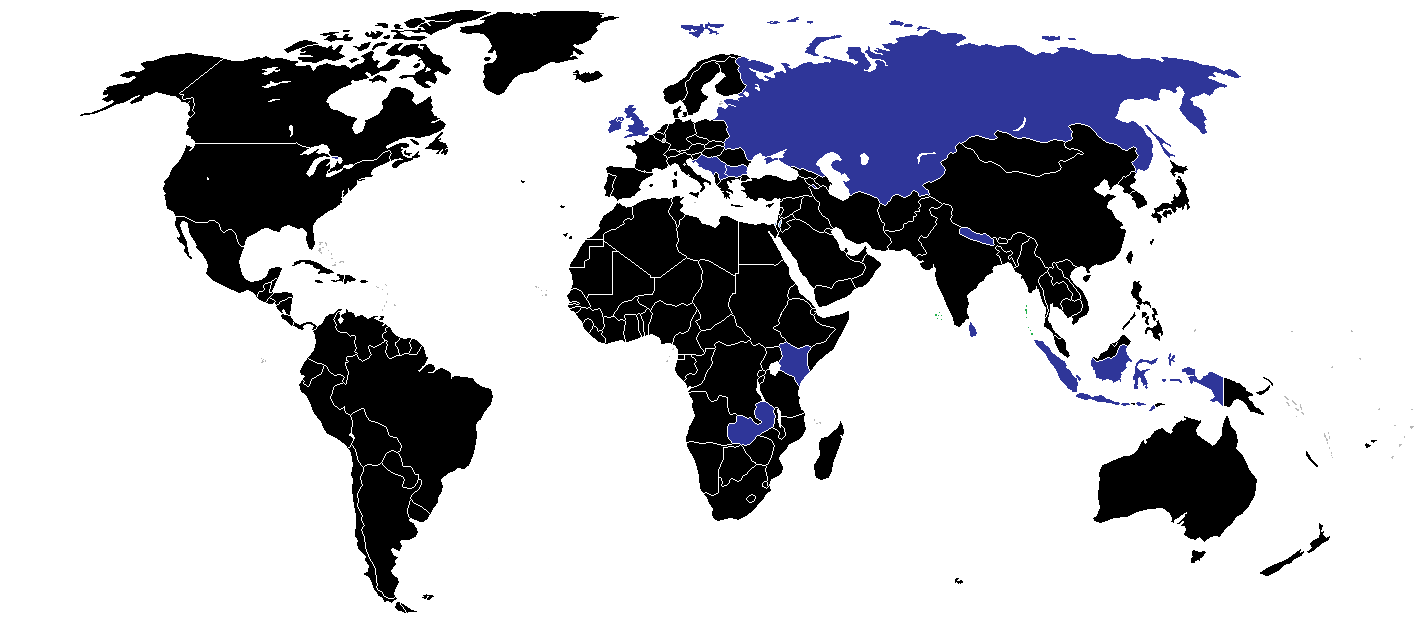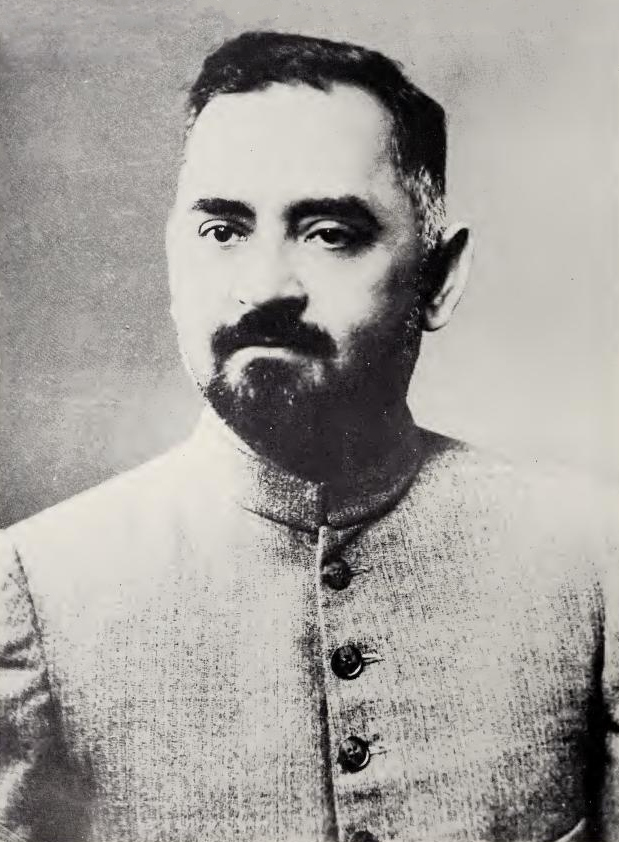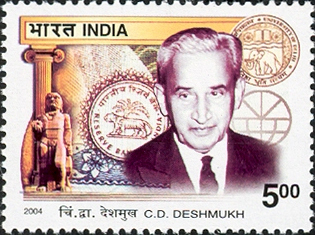|
1969 Indian Presidential Election
The Election Commission of India held indirect 5th presidential elections of India on 16 August 1969. Varahagiri Venkata Giri with 420,077 votes won in a runoff election over his rival Neelam Sanjeeva Reddy who got 405,427 votes. Schedule The election schedule was announced by the Election Commission of India on 14 July 1969. Results Source: Web archive of Election Commission of India website Giri won a majority of the votes in 11 of India's 17 state legislatures although the Congress Party was in power in 12. His campaign also had the backing of the Communists and other leftist parliamentary parties. Massive defections within the Congress Party resulted in Reddy winning only 268 first preference votes despite the Congress Parliamentary Party having a strength of 431. Background The Congress Parliamentary Board met on July 11, 1969, to discuss the presidential candidate. The Syndicate had already decided on nominating Sanjiva Reddy, whose affinity to them was well known. M ... [...More Info...] [...Related Items...] OR: [Wikipedia] [Google] [Baidu] |
Odisha
Odisha (English: , ), formerly Orissa ( the official name until 2011), is an Indian state located in Eastern India. It is the 8th largest state by area, and the 11th largest by population. The state has the third largest population of Scheduled Tribes in India. It neighbours the states of Jharkhand and West Bengal to the north, Chhattisgarh to the west, and Andhra Pradesh to the south. Odisha has a coastline of along the Bay of Bengal in Indian Ocean. The region is also known as Utkala and is also mentioned in India's national anthem, " Jana Gana Mana". The language of Odisha is Odia, which is one of the Classical Languages of India. The ancient kingdom of Kalinga, which was invaded by the Mauryan Emperor Ashoka (which was again won back from them by King Kharavela) in 261 BCE resulting in the Kalinga War, coincides with the borders of modern-day Odisha. The modern boundaries of Odisha were demarcated by the British Indian government when Orissa Province wa ... [...More Info...] [...Related Items...] OR: [Wikipedia] [Google] [Baidu] |
Neelam Sanjiva Reddy
Neelam Sanjiva Reddy (; 19 May 1913 – 1 June 1996) was an Indian politician who served as the sixth President of India, serving from 1977 to 1982. Beginning a long political career with the Indian National Congress Party in the independence movement, he went on to hold several key offices in independent India — as Deputy Chief minister of Andhra state and the first Chief Minister of United Andhra Pradesh, a two-time Speaker of the Lok Sabha and a Union Minister— before becoming the Indian president. Born in present-day Anantapur district, Andhra Pradesh, Reddy completed his schooling at Adayar and joined the Government Arts College at Anantapur. He quit to become an Indian independence activist and was jailed for participating in the Quit India Movement. He was elected to the Madras Legislative Assembly in 1946 as a Congress party representative. Reddy became the deputy chief minister of Andhra State in 1953 and the first Chief Minister of Andhra Pradesh in 1956. He ... [...More Info...] [...Related Items...] OR: [Wikipedia] [Google] [Baidu] |
Andhra Pradesh
Andhra Pradesh (, abbr. AP) is a state in the south-eastern coastal region of India. It is the seventh-largest state by area covering an area of and tenth-most populous state with 49,386,799 inhabitants. It is bordered by Telangana to the north-west, Chhattisgarh to the north, Odisha to the north-east, Tamil Nadu to the south, Karnataka to the west and the Bay of Bengal to the east. It has the second longest coastline in India after Gujarat, of about . Andhra State was the first state to be formed on a linguistic basis in India on 1 October 1953. On 1 November 1956, Andhra State was merged with the Telugu-speaking areas (ten districts) of the Hyderabad State to form United Andhra Pradesh. ln 2014 these merged areas of Hyderabad State are bifurcated from United Andhra Pradesh to form new state Telangana . Present form of Andhra similar to Andhra state.but some mandalas like Bhadrachalam still with Telangana. Visakhapatnam, Guntur, Kurnool is People Capital of And ... [...More Info...] [...Related Items...] OR: [Wikipedia] [Google] [Baidu] |
Zakir Husain (politician)
(8 February 1897 – 3 May 1969) known as Dr. Zakir Husain, was an Indian educationist and politician who served as President of India from 13 May 1967 until his death on 3 May 1969. Born into an Afridi Pashtun family in Hyderabad, Husain studied in Etawah, the Muhammadan Anglo-Oriental College, Aligarh and the University of Berlin from where he obtained a doctoral degree in economics. He was a founding member of the Jamia Milia Islamia of which he served as Vice-chancellor during 1926 to 1948. He was closely associated with Mahatma Gandhi and was chairman of the Basic National Education Committee which framed a new educational policy known as Nai Talim with its emphasis on free and compulsory education in the first language. Appointed Vice Chancellor of the Aligarh Muslim University in 1948, he helped retain it as a national institution of higher learning. For his services to education, he was awarded the Padma Vibhushan in 1954 and was a nominated member of the Indian ... [...More Info...] [...Related Items...] OR: [Wikipedia] [Google] [Baidu] |
Varahagiri Venkata Giri
Varahagiri Venkata Giri (; 10 August 1894 — 24 June 1980) was an Indian politician and activist from Berhampur in Odisha who served as the 4th president of India from 24 August 1969 to 24 August 1974. He also 3rd vice president of India from 13 May 1967 to 3 May 1969. He is the first president to be elected as an independent candidate. He was succeeded by Fakhruddin Ali Ahmed as president in 1974. After the end of his full term, Giri was honoured by the Government of India with the Bharat Ratna in 1975. Giri died on 24 June 1980. Early life and family V. V. Giri was born in Berhampur, Madras Presidency (present-day Odisha) into a Telugu speaking Niyogi Brahmin family. His parents hailed from Chintalapudi village in East Godavari district of Andhra Pradesh and shifted to Berhampur for their bright future. His father, V. V. Jogayya Pantulu, was a successful lawyer and political activist of the Indian National Congress who had been working at Berhampur. Giri's mother Subhadram ... [...More Info...] [...Related Items...] OR: [Wikipedia] [Google] [Baidu] |
President Of India
The president of India ( IAST: ) is the head of state of the Republic of India. The president is the nominal head of the executive, the first citizen of the country, as well as the commander-in-chief of the Indian Armed Forces. Droupadi Murmu is the 15th and current president, having taken office from 25 July 2022. The office of president was created when India officially became a republic on 26 January 1950 after gaining independence on 15th August 1947, when its constitution came into force. The president is indirectly elected by an electoral college comprising both houses of the Parliament of India and the legislative assemblies of each of India's states and territories, who themselves are all directly elected by the citizens. Article 53 of the Constitution of India states that the president can exercise their powers directly or by subordinate authority (with few exceptions), though all of the executive powers vested in the president are, in practice, exercise ... [...More Info...] [...Related Items...] OR: [Wikipedia] [Google] [Baidu] |
Two-round System
The two-round system (TRS), also known as runoff voting, second ballot, or ballotage, is a voting method used to elect a single candidate, where voters cast a single vote for their preferred candidate. It generally ensures a majoritarian result, not a simple plurality result as under First past the post. Under the two-round election system, the election process usually proceeds to a second round only if in the first round no candidate received a simple majority (more than 50%) of votes cast, or some other lower prescribed percentage. Under the two-round system, usually only the two candidates who received the most votes in the first round, or only those candidates who received above a prescribed proportion of the votes, are candidates in the second round. Other candidates are excluded from the second round. The two-round system is widely used in the election of legislative bodies and directly elected presidents, as well as in other contexts, such as in the election of politic ... [...More Info...] [...Related Items...] OR: [Wikipedia] [Google] [Baidu] |
Neelam Sanjeeva Reddy
Neelam Sanjiva Reddy (; 19 May 1913 – 1 June 1996) was an Indian politician who served as the sixth President of India, serving from 1977 to 1982. Beginning a long political career with the Indian National Congress Party in the independence movement, he went on to hold several key offices in independent India — as Deputy Chief minister of Andhra state and the first Chief Minister of United Andhra Pradesh, a two-time Speaker of the Lok Sabha and a Union Minister— before becoming the Indian president. Born in present-day Anantapur district, Andhra Pradesh, Reddy completed his schooling at Adayar and joined the Government Arts College at Anantapur. He quit to become an Indian independence activist and was jailed for participating in the Quit India Movement. He was elected to the Madras Legislative Assembly in 1946 as a Congress party representative. Reddy became the deputy chief minister of Andhra State in 1953 and the first Chief Minister of Andhra Pradesh in 1956. ... [...More Info...] [...Related Items...] OR: [Wikipedia] [Google] [Baidu] |
Election Commission Of India
The Election Commission of India (ECI) is a constitutional body. It was established by the Constitution of India to conduct and regulate elections in the country. Article 324 of the Constitution provides that the power of superintendence, direction, and control of elections to parliament, state legislatures, the office of the president of India, and the office of vice-president of India shall be vested in the election commission. Thus, the Election Commission is an all-India body in the sense that it is common to both the Central government and the state governments. The body administers elections to the Lok Sabha, Rajya Sabha, State Legislative Assemblies, State Legislative Councils and the offices of the President and Vice President of the country. The Election Commission operates under the authority of Constitution per ''Article 324'', and subsequently enacted Representation of the People Act. The commission has the powers under the Constitution, to act in an appropriate ... [...More Info...] [...Related Items...] OR: [Wikipedia] [Google] [Baidu] |
Chintaman Dwarkanath Deshmukh
Sir Chintaman Dwarakanath Deshmukh, CIE, ICS (14 January 1896 – 2 October 1982) was an Indian civil servant and the first Indian to be appointed the Governor of the Reserve Bank of India in 1943 by the British Raj authorities. He subsequently served as the Finance Minister in the Union Cabinet (1950–1956). It was during this time that he also became a founding member of the Governing Body of NCAER, the National Council of Applied Economic Research in New Delhi, India's first independent economic policy institute established in 1956 at the behest of Prime Minister Jawaharlal Nehru. After resignation from Union Cabinet he worked as Chairman of UGC (1956–1961). He served as Vice-Chancellor of University of Delhi (1962–67). He was also President of Indian Statistical Institute from 1945 to 1964, Honorary Chairman of National Book Trust (1957–60). He founded India International Center in 1959 and served as Lifetime President of it. He was also chairman of Indian Institu ... [...More Info...] [...Related Items...] OR: [Wikipedia] [Google] [Baidu] |
Gurcharan Kaur
Gurcharan Kaur (born 4 February 1936) is an Indian politician. She was a Member of Parliament, representing Punjab in the Rajya Sabha the upper house of India's Parliament as a member of the Bharatiya Janata Party The Bharatiya Janata Party (BJP; ; ) is a political party in India, and one of the two major Indian political parties alongside the Indian National Congress. Since 2014, it has been the ruling political party in India under Narendra Mod .... References {{DEFAULTSORT:Kaur, Gurcharan Rajya Sabha members from Punjab, India Bharatiya Janata Party politicians from Punjab Women members of the Rajya Sabha 1936 births Living people ... [...More Info...] [...Related Items...] OR: [Wikipedia] [Google] [Baidu] |
Indian National Congress
The Indian National Congress (INC), colloquially the Congress Party but often simply the Congress, is a political party in India with widespread roots. Founded in 1885, it was the first modern nationalist movement to emerge in the British Empire in Asia and Africa. From the late 19th century, and especially after 1920, under the leadership of Mahatma Gandhi, the Congress became the principal leader of the Indian independence movement. The Congress led India to independence from the United Kingdom, and significantly influenced other anti-colonial nationalist movements in the British Empire. Congress is one of the two major political parties in India, along with its main rival the Bharatiya Janata Party. It is a "big tent" party whose platform is generally considered to lie in the centre to of Indian politics. After Indian independence in 1947, Congress emerged as a catch-all and secular party, dominating Indian politics for the next 20 years. The party's first prime min ... [...More Info...] [...Related Items...] OR: [Wikipedia] [Google] [Baidu] |







